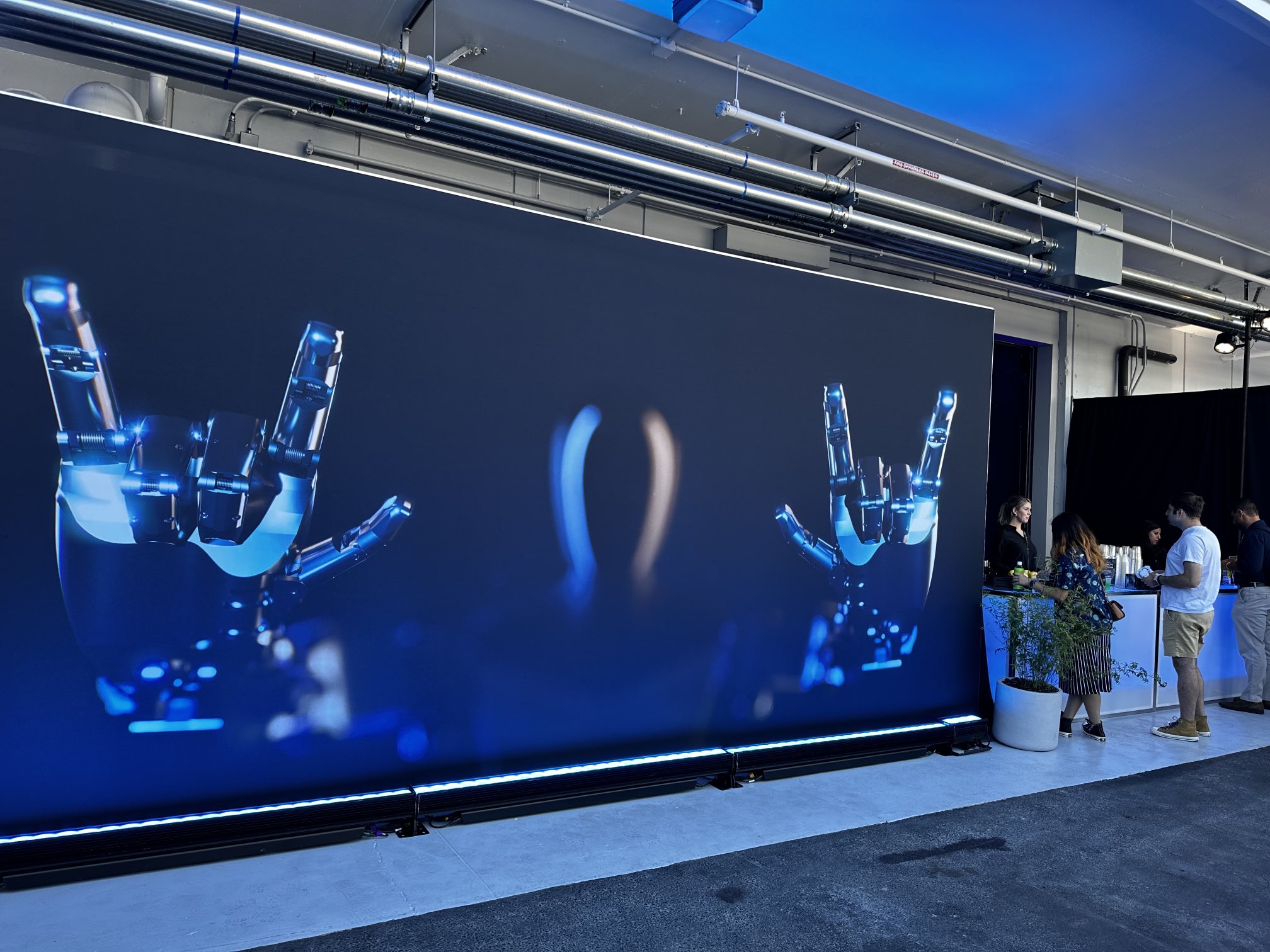

News
Tesla AI Day News Roundup: Optimus, FSD Beta & Dojo updates
Tesla AI Day has officially kicked off. Guests have started entering the venue already.
AI Day is an event mainly held to recruit talented people and welcome them to Tesla. However, it is still a Tesla event, so everyone expects some product surprises and updates, specifically about the company’s humanoid robot, Optimus, Dojo, and Full Self-Driving.
Teslarati will be closely following the event. This is our news roundup for 2022 AI Day, covering key information Tesla reveals at the event.
Photos and Videos aren’t allowed during the event from attendees. However, guests were able to capture some cool photos of a Tesla Semi with Cybertruck graffiti, a literal fork on the road, and some other cool set ups around the premises.
Tesla’s former AI Head, Andrej Karpathy, has brought out the (metaphorical) popcorn. His brief “comment” hints that AI Day 2022 might be as exciting as everyone anticipates.
Elon Musk set some expectations about Optimus, reminding everyone that during AI Day 2021, Tesla’s humanoid bot was just “a guy in a robot suit.” Musk also laid out the topics for AI Day 2022, saying that Tesla will talk about Autopilot and Dojo, too.
Optimus Takes the Stage
Tesla didn’t waste any time and brought out Optimus immediately. According to a Tesla mechanical engineer, AI Day 2022 is the first time Optimus has been “let out”– so to speak– without any external support.
“This is literally the first time the robot has walked on stage without a tether, on stage tonight,” Musk added. “The robot can actually do a lot more than we showed you. We just don’t want it to fall on its face.”
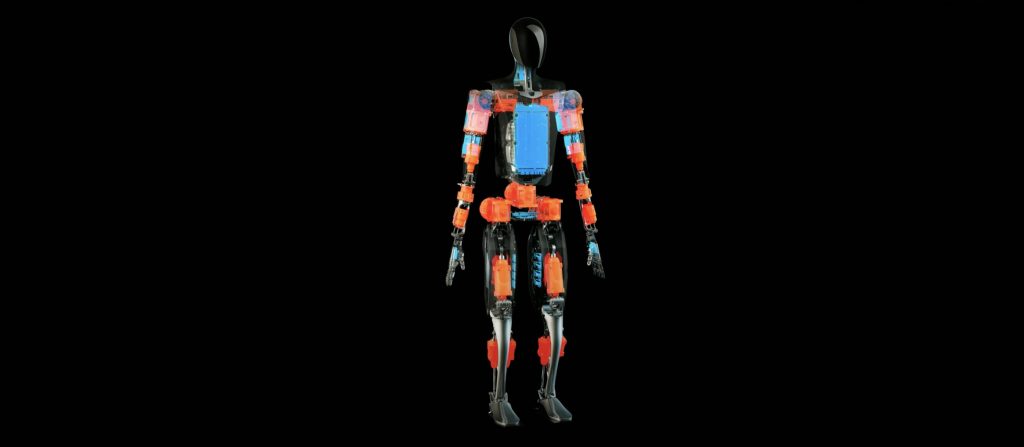
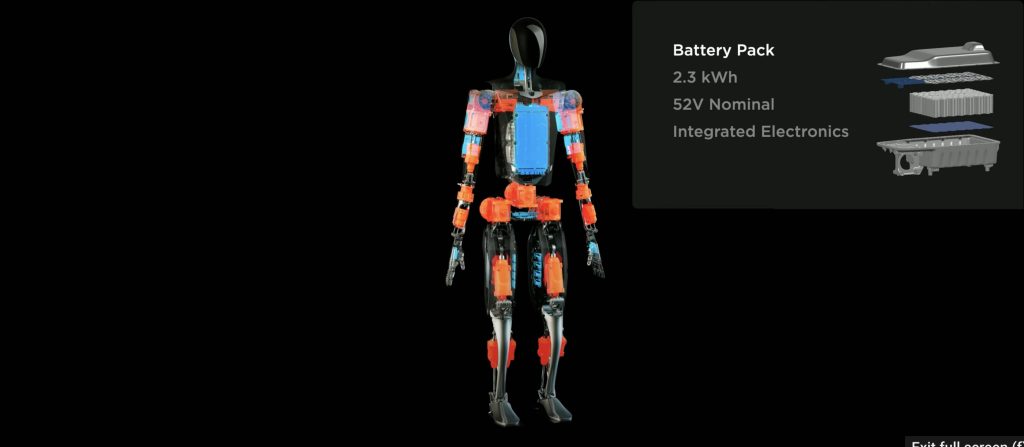
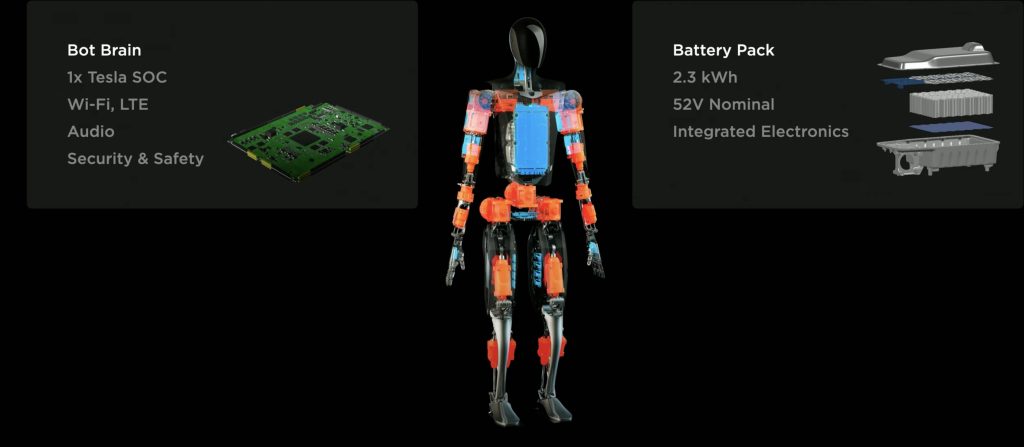
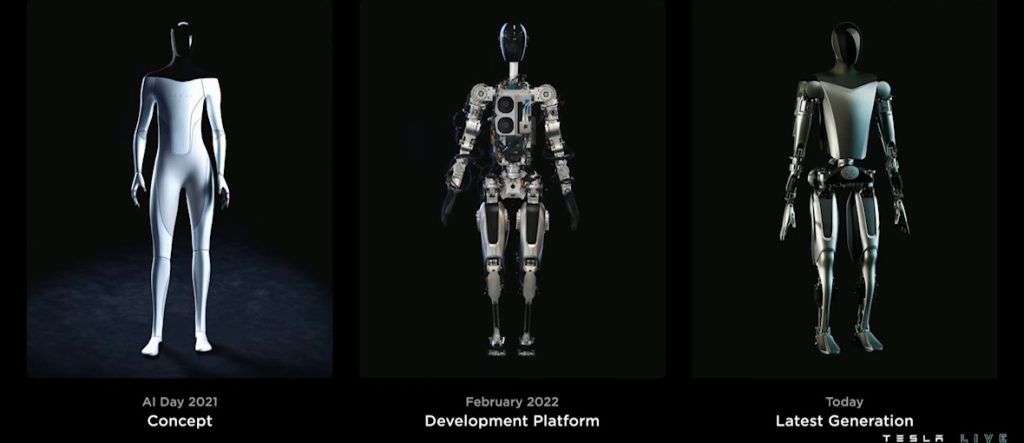
Tesla reveals videos of Optimus or in this case “Bumble-Cee” doing “work” around the Tesla office. Optimus carried a box from one area to another, watered plants, and even worked at the factory for a bit. The Tesla bot’s vision is very similar Autopilot.
Tesla also revealed Optimus’ potential final unit one production design. “Our goal is to make a useful humanoid robot as soon as possible,” said Elon Musk. The Tesla CEO also shared that Tesla aims to make Optimus’ price less than $20,000 or cheaper than a car.
Tesla is using some of the technology in its car in Optimus’ body as well, such as the battery pack, cooling system and more. The company also uses that same technology it uses for its cars to simulate Optimus’ movements and reactions to external collisions.
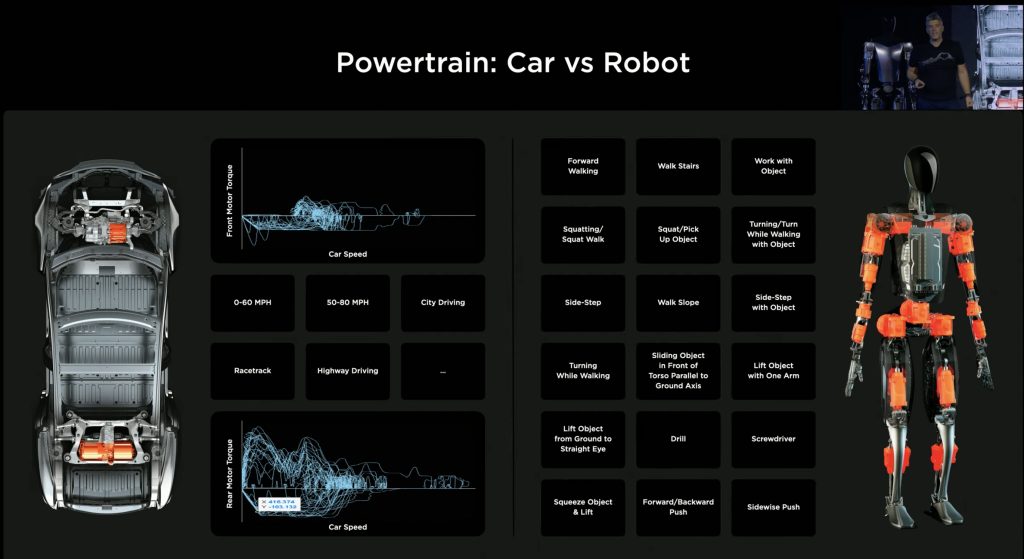
Tesla is basing Optimus’ body design on the human body. The company has been closely studying the structure of the human body while making the humanoid robot’s overall design. For instance, Tesla designed Optimus’ hands with the idea that factories worldwide are designed ergonomically, or optimized for the human hand. Teslarati briefly covered the significance of robots’ hands in a previous article, linked below.
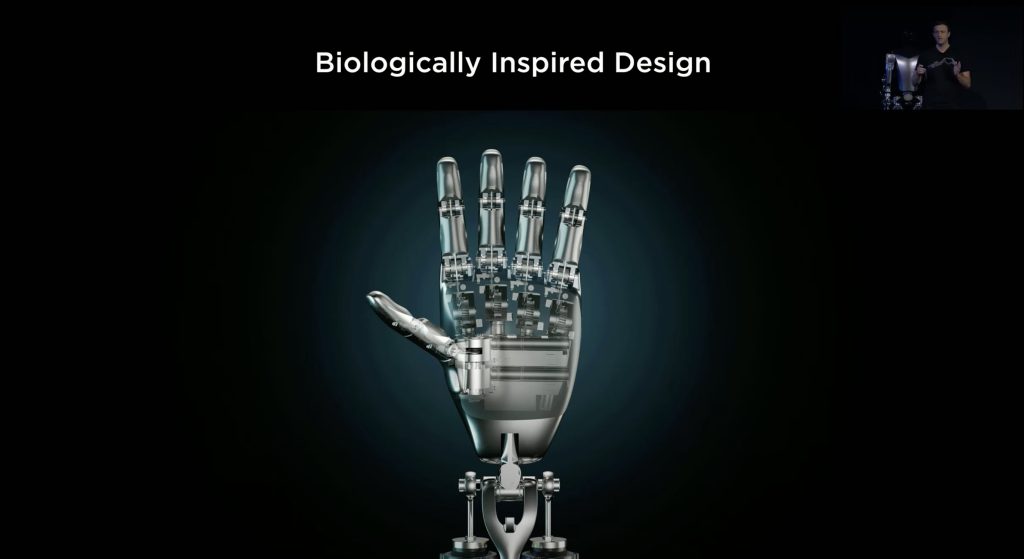
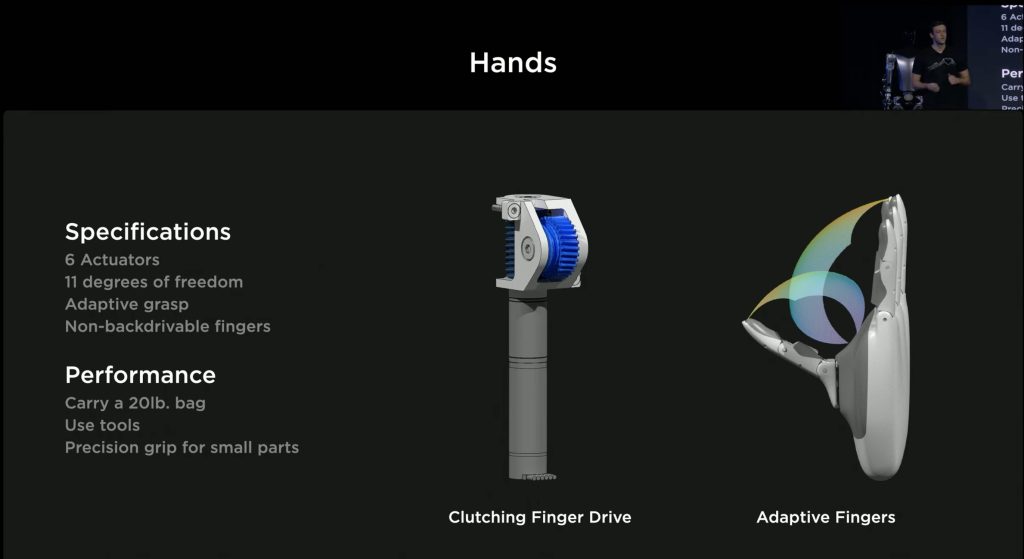
FSD Beta Updates
The Tesla FSD Beta now has 160,000 customers, compared to 2,000 customers in 2021. Tesla is expected to release v.10.69.2.3 after AI Day, although a precise roll out date has not be announced yet.
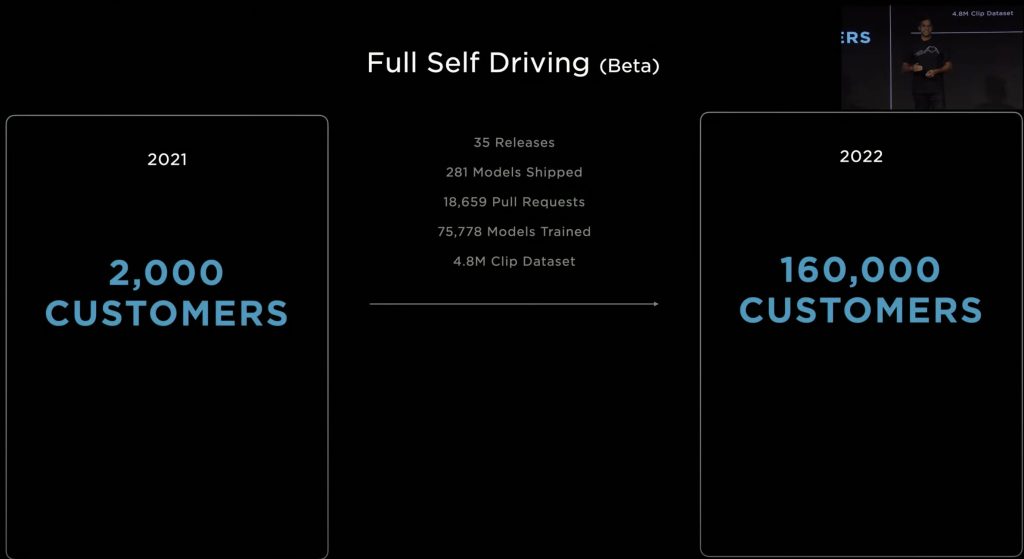
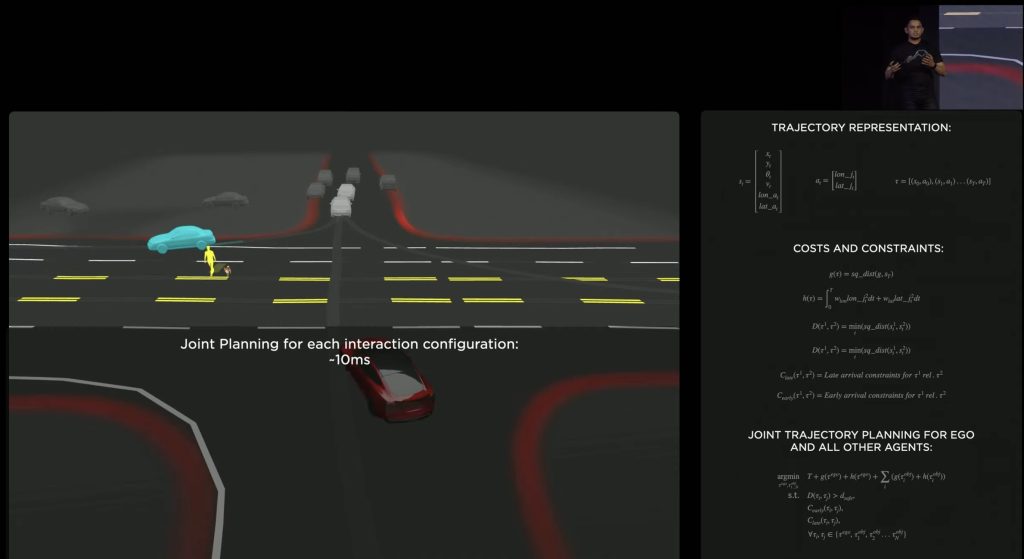
Tesla explained the progress its made with Full Self-Driving Beta. The Tesla FSD experts explained how the Full Self-Driving makes decision to AI day guests and the role that customer data played to refine the software. The company also explained occupancy and the role it plays with 3D mapping and providing a birds-eye-view for the car. Tesla is working hard to optimize its video model training as well.
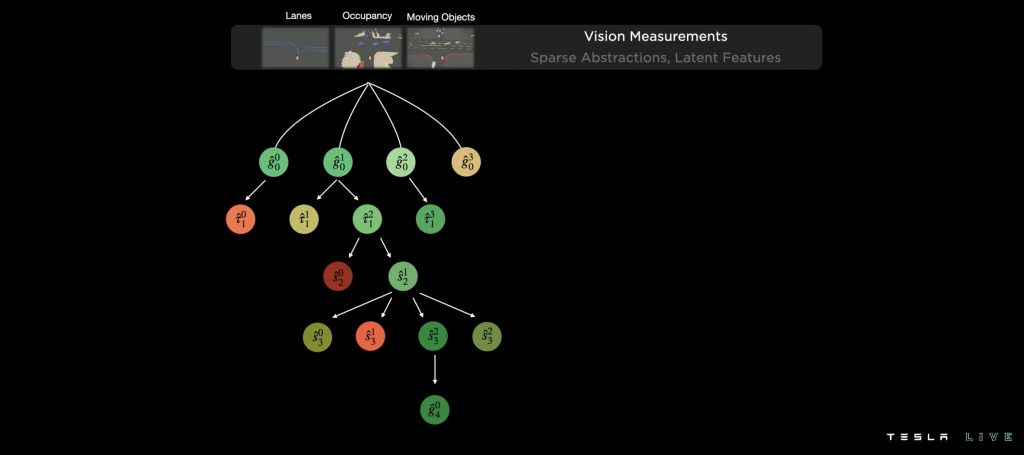
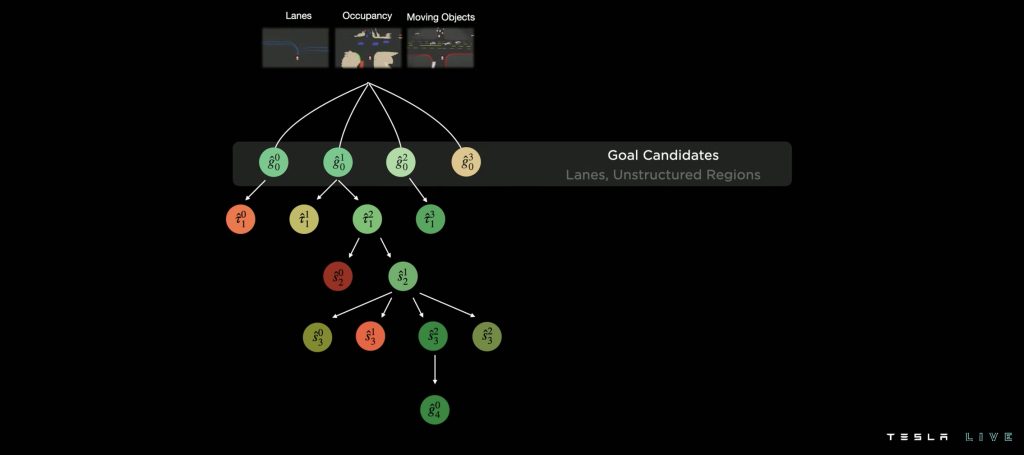
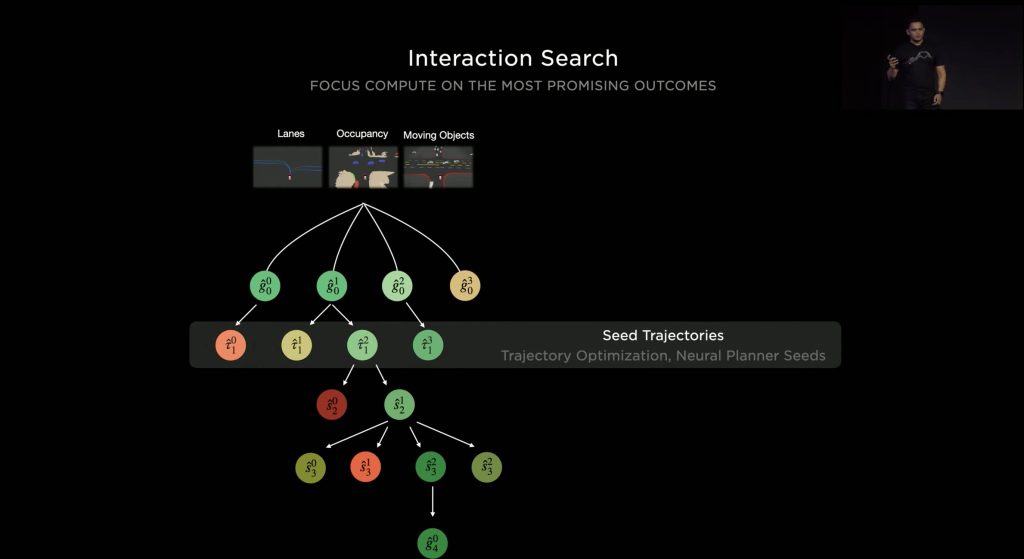
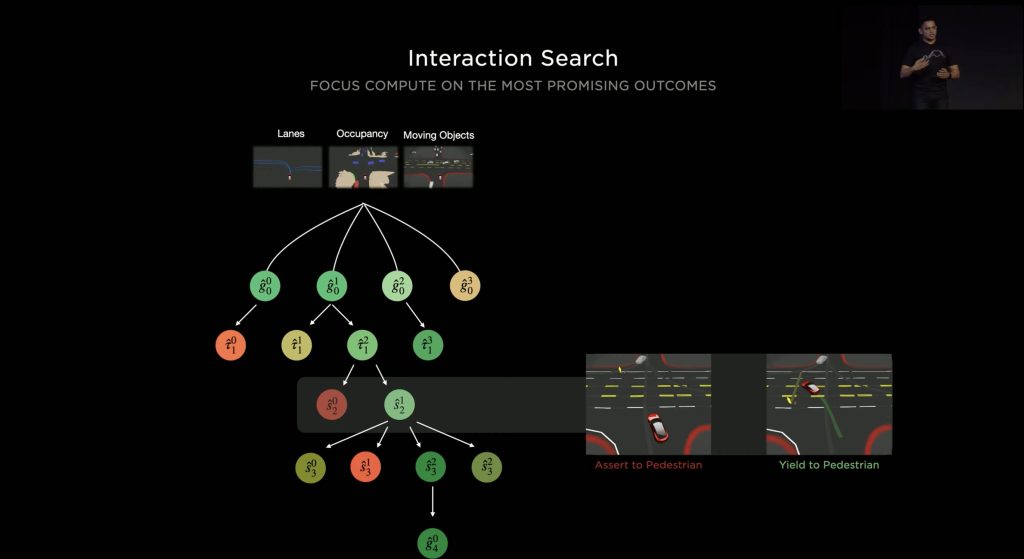
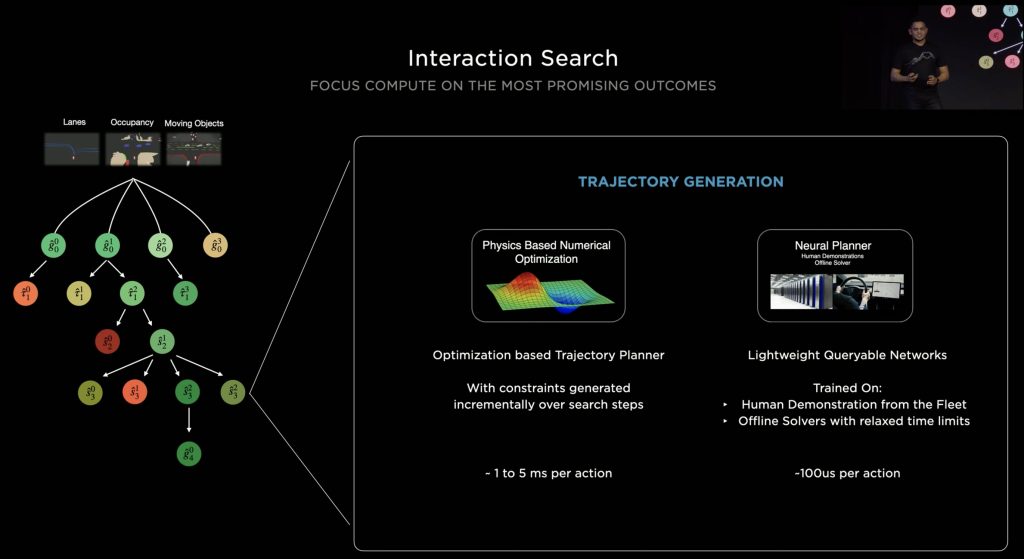
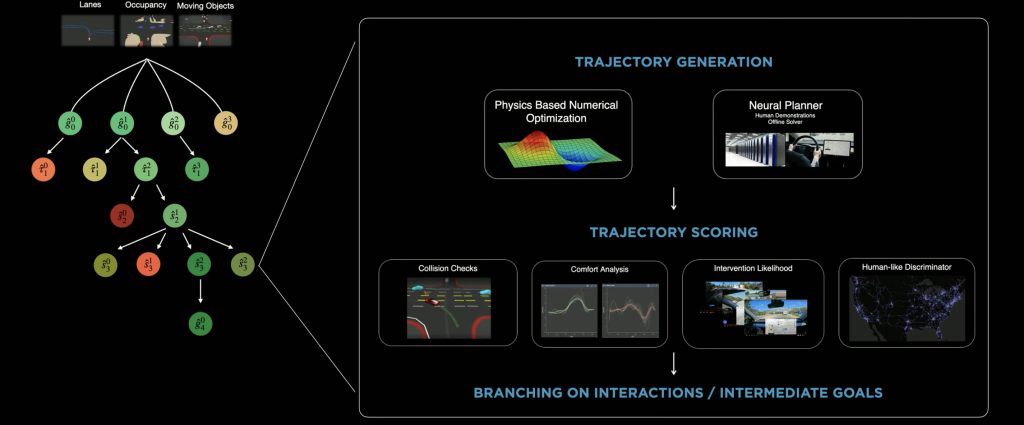
Tesla also talked a lot about its FSD Lane Networks during AI Day 2022. In the past few weeks, Teslarati has received reports from FSD testers, who specifically brought up issues with lane selection. To see “under the hood”–so to speak–somewhat explains the lane issues FSD testers experience on the road.
After multiple test loops and drives, there’s really just one main problem remaining for me at this point on 10.69.2, it’s significant, and that is lane selection,” noted long-time FSD tester Les.
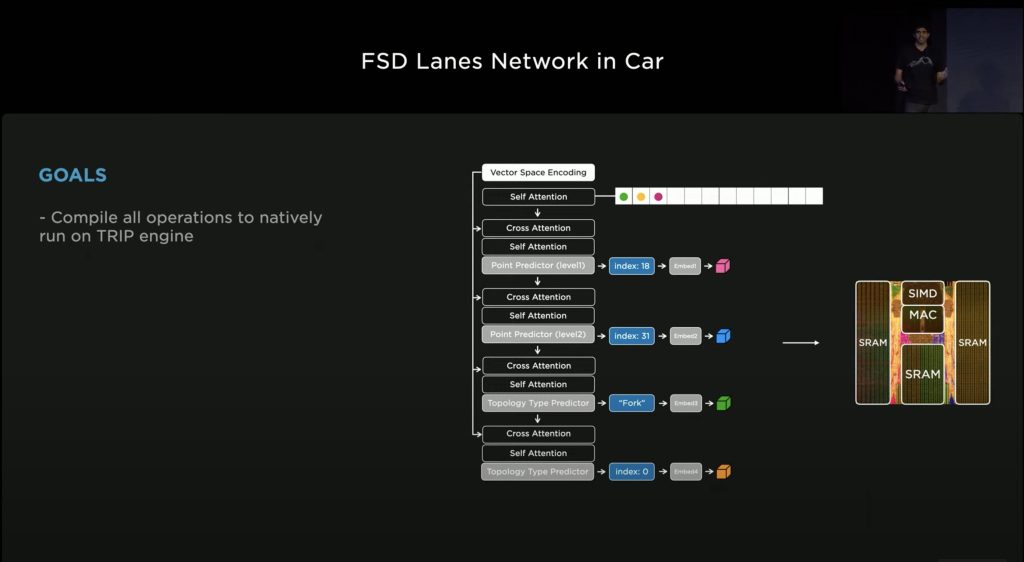
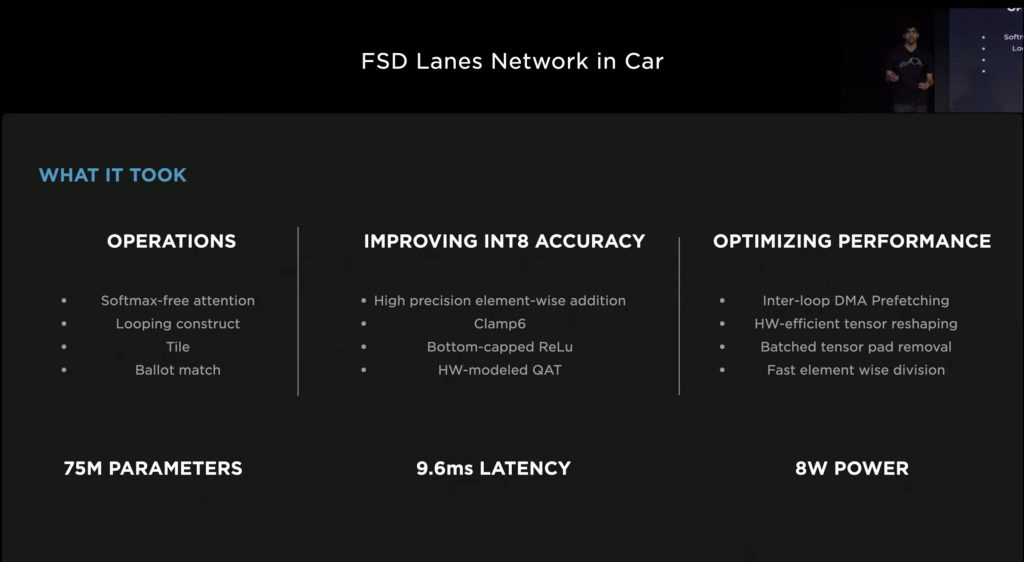
Tesla has developed a new auto-labeling machine to help with 3D labeling. The FSD experts explained how the software uses other clips to fill out the picture under certain conditions when the camera shows an unclear picture.
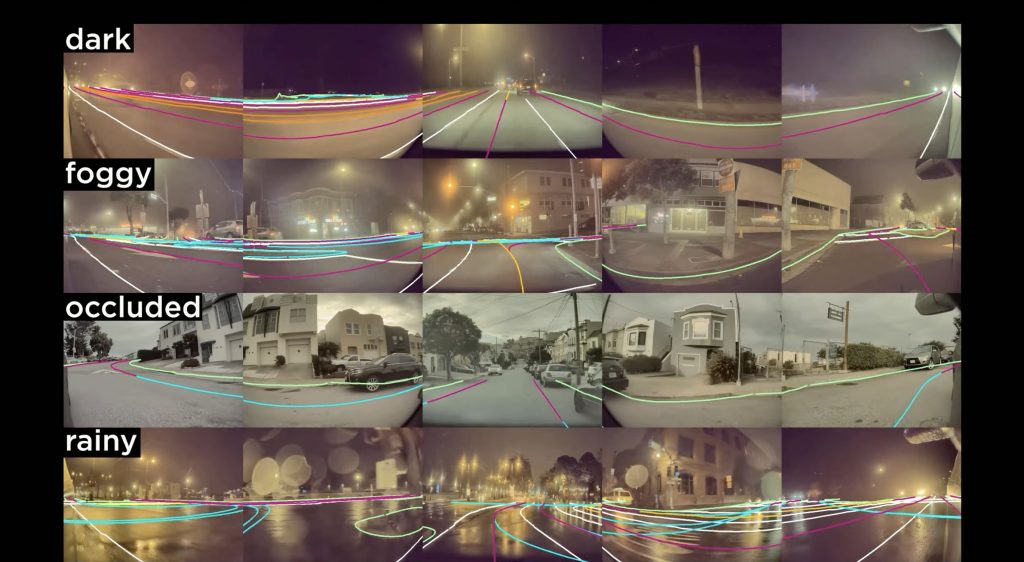
Tesla also talked a bit about simulation. The experts showed how it could simulate worlds or environments, using the data gathered from its fleet. It revealed a simulation of San Francisco that was created within two weeks by one employee. Tesla may update a simulated world quickly and as updated develop.
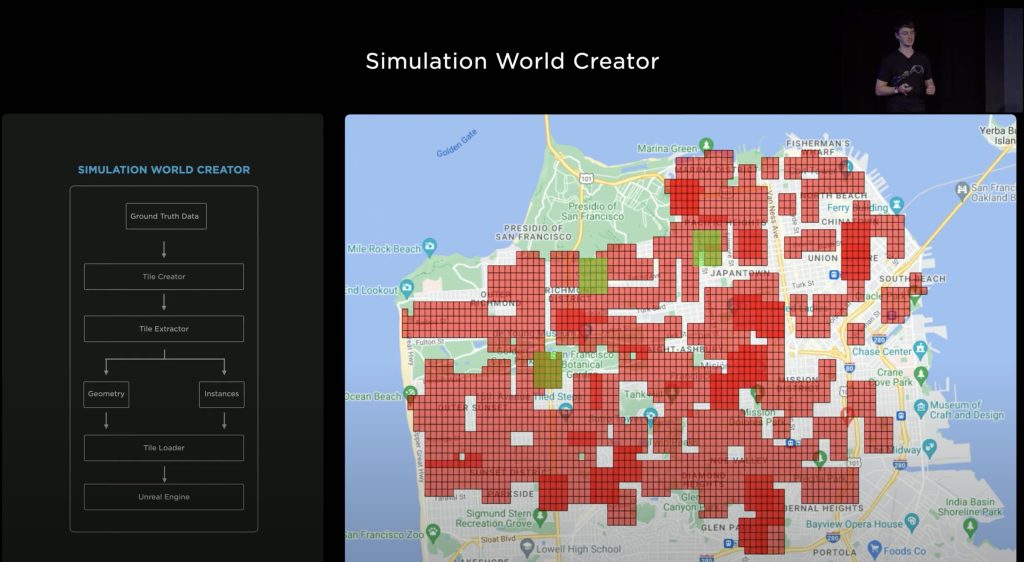
Dojo Updates
Tesla’s goal with Dojo is to build a single accelerator. A key step to realizing its goals was its training tile, which it unveiled during AI Day 2021. Tesla has been trying to figure out how to make its Dojo design scalable and has run into challenges along the way. However, the company’s “fail fast” mindset has helped it push through road blocks and move forward.


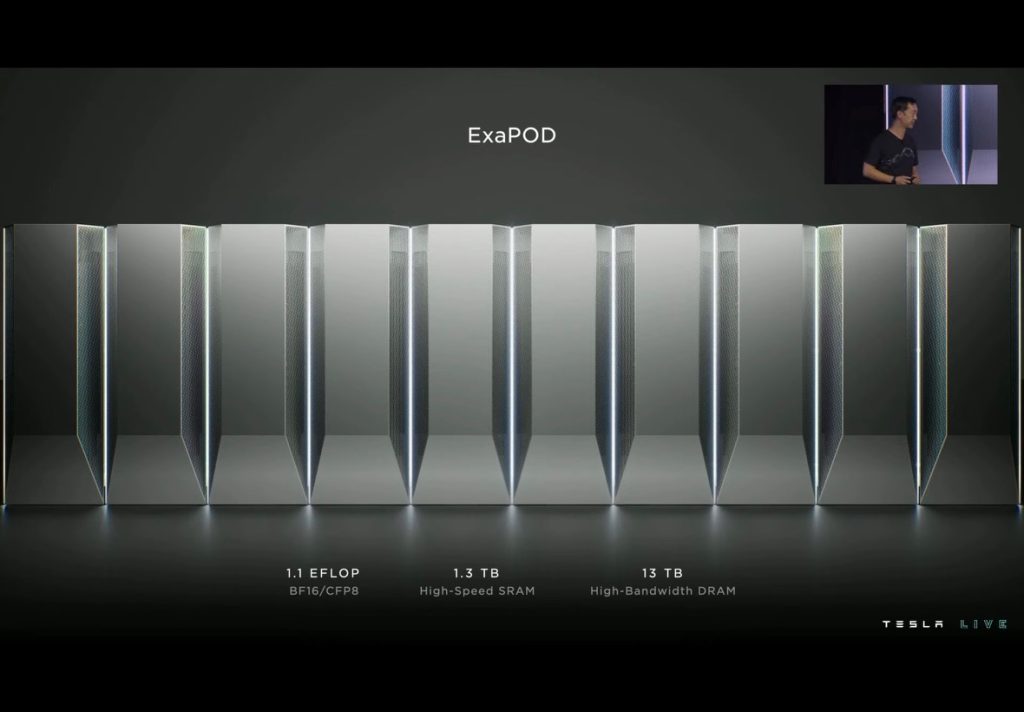
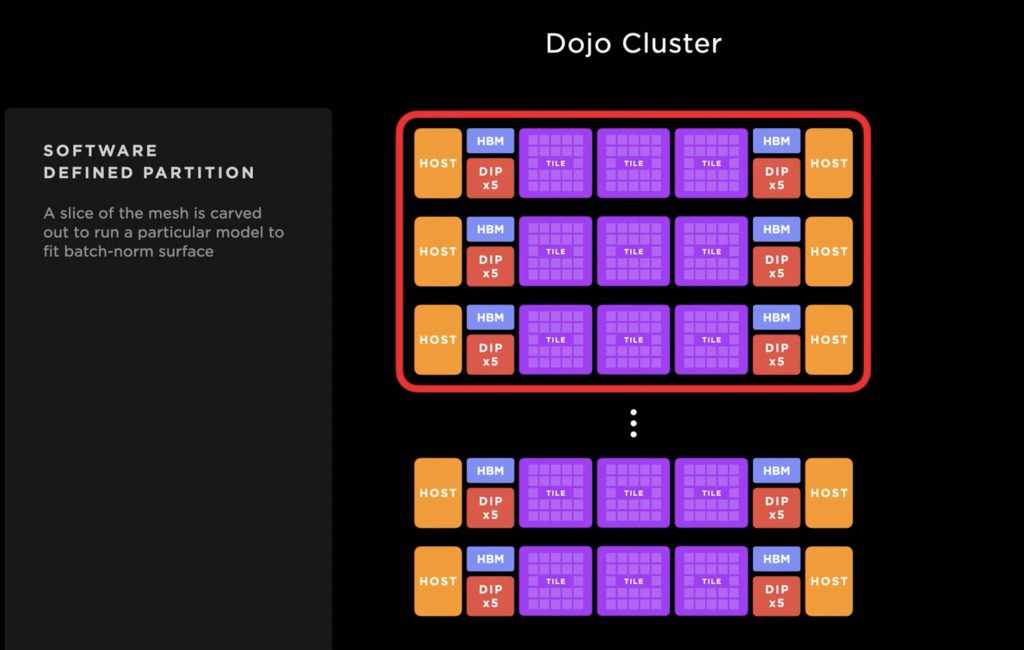
The Dojo team showed images of a Cybertruck and Semi running on Mars using stable diffusion achieved through Dojo.
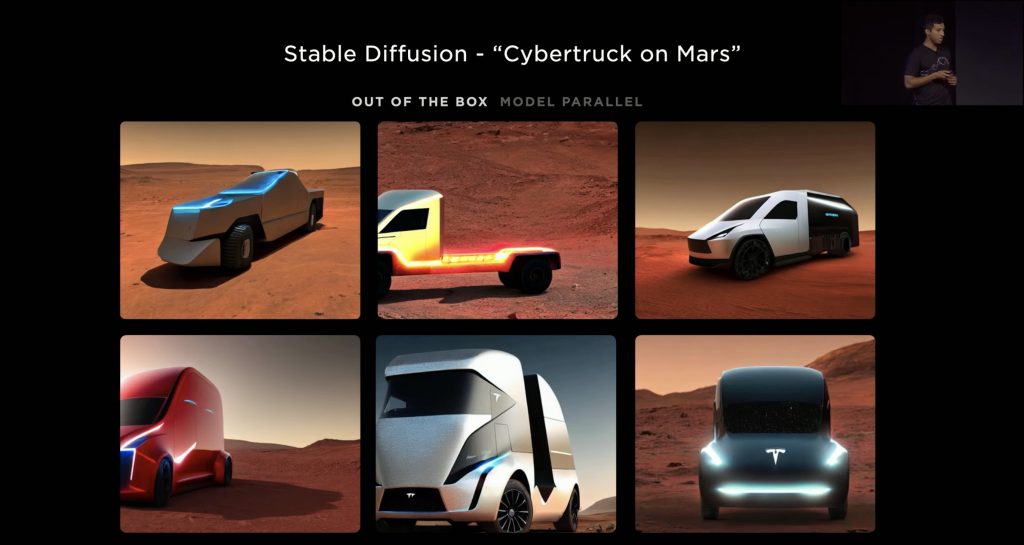
Tesla experts explained that Dojo reduced work that would usually take months to a single week.
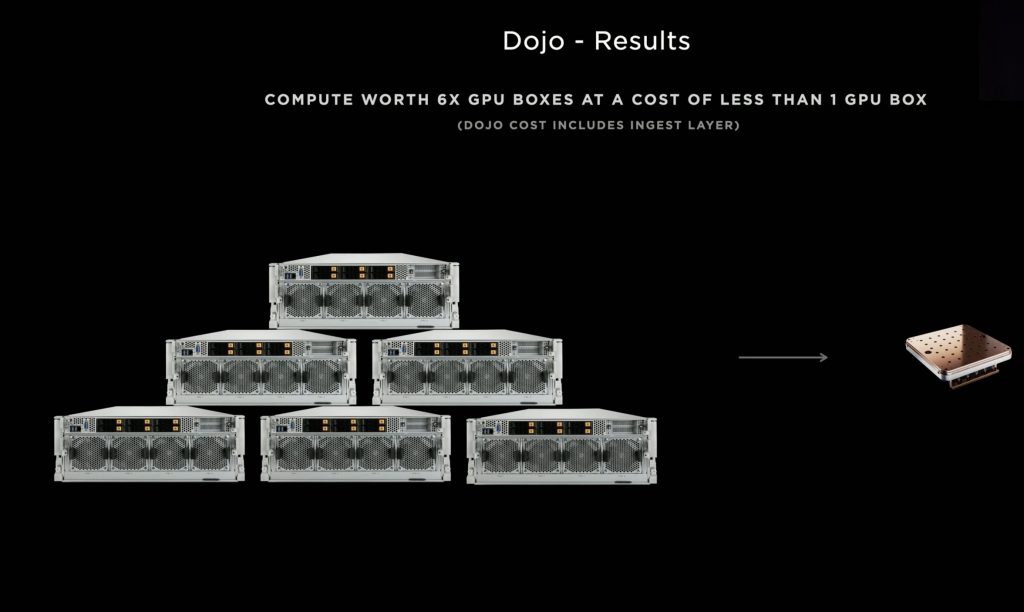
Tesla plans to build its first Exapod by 2023, which is expected to significantly increase its autolabeling output . It will be the first Exapod of 7 that Tesla plans to build in Palo Alto.
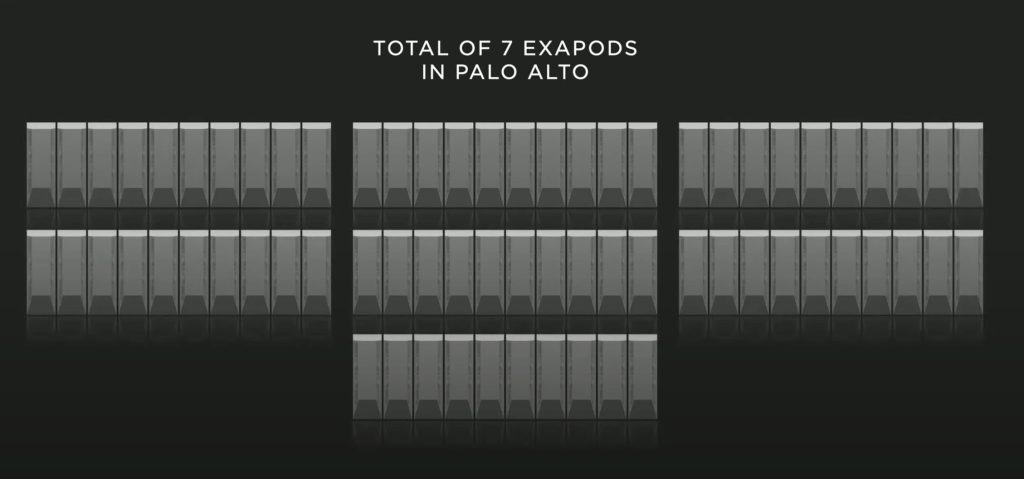
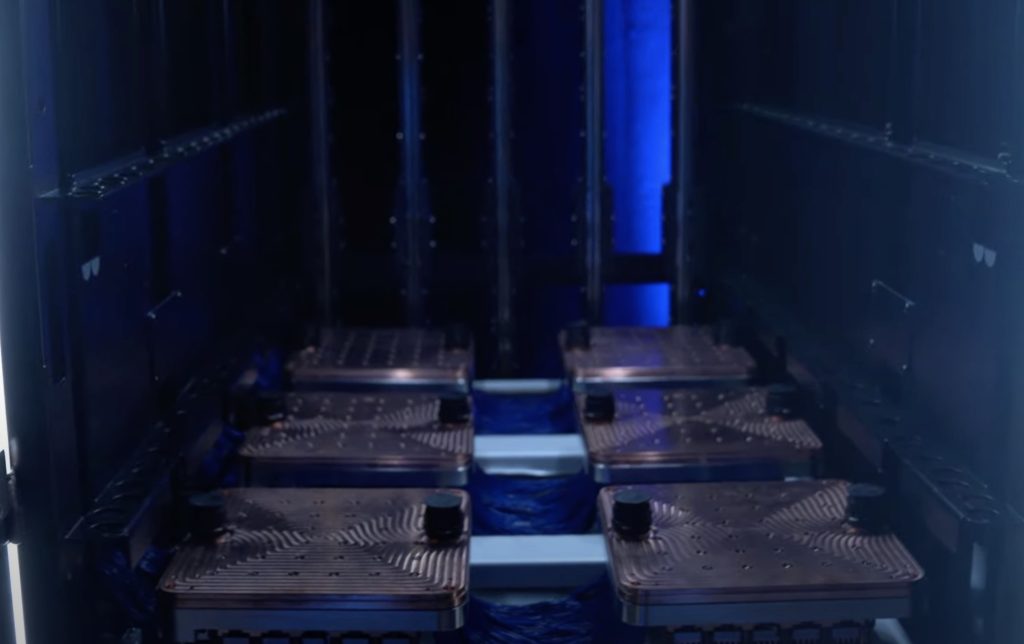
Tesla ended AI Day 2022 by answering questions from attendees. Tesla hopes that through their thorough explanations during the event, the company would be seen as more than an automaker. And, of course, Tesla hopes that its AI Day 2022 presentation also entices talented individuals to join the company.
The Teslarati team would appreciate hearing from you. If you have any tips, contact me at maria@teslarati.com or via Twitter @Writer_01001101.

Cybertruck
Tesla drops latest hint that new Cybertruck trim is selling like hotcakes
According to Tesla’s Online Design Studio, the new All-Wheel-Drive Cybertruck will now be delivered in April 2027. Earlier orders are still slated for early this Summer, but orders from here on forward are now officially pushed into next year:

Tesla’s new Cybertruck offering has had its delivery date pushed back once again. This is now the second time, and deliveries for the newest orders are now pushed well into 2027.
According to Tesla’s Online Design Studio, the new All-Wheel-Drive Cybertruck will now be delivered in April 2027. Earlier orders are still slated for early this Summer, but orders from here on forward are now officially pushed into next year:
🚨 Tesla has updated the $59,990 Cybertruck Dual Motor AWD’s estimated delivery date to April 2027.
First deliveries are still slated for June, but if you order it now, you’ll be waiting over a year.
Demand appears to be off the charts for the new Cybertruck and consumers are… pic.twitter.com/raDCCeC0zP
— TESLARATI (@Teslarati) February 26, 2026
Just three days ago, the initial delivery date of June 2026 was pushed back to early Fall, and now, that date has officially moved to April 2027.
The fact that Tesla has had to push back deliveries once again proves one of two things: either Tesla has slow production plans for the new Cybertruck trim, or demand is off the charts.
Judging by how Tesla is already planning to raise the price based on demand in just a few days, it seems like the company knows it is giving a tremendous deal on this spec of Cybertruck, and units are moving quickly.
That points more toward demand and not necessarily to slower production plans, but it is not confirmed.
Tesla Cybertruck’s newest trim will undergo massive change in ten days, Musk says
Tesla is set to hike the price on March 1, so tomorrow will be the final day to grab the new Cybertruck trim for just $59,990.
It features:
- Dual Motor AWD w/ est. 325 mi of range
- Powered tonneau cover
- Bed outlets (2x 120V + 1x 240V) & Powershare capability
- Coil springs w/ adaptive damping
- Heated first-row seats w/ textile material that is easy to clean
- Steer-by-wire & Four Wheel Steering
- 6’ x 4’ composite bed
- Towing capacity of up to 7,500 lbs
- Powered frunk
Interestingly, the price offering is fairly close to what Tesla unveiled back in late 2019.
Elon Musk
Elon Musk outlines plan for first Starship tower catch attempt
Musk confirmed that Starship V3 Ship 1 (SN1) is headed for ground tests and expressed strong confidence in the updated vehicle design.

Elon Musk has clarified when SpaceX will first attempt to catch Starship’s upper stage with its launch tower. The CEO’s update provides the clearest teaser yet for the spacecraft’s recovery roadmap.
Musk shared the details in recent posts on X. In his initial post, Musk confirmed that Starship V3 Ship 1 (SN1) is headed for ground tests and expressed strong confidence in the updated vehicle design.
“Starship V3 SN1 headed for ground tests. I am highly confident that the V3 design will achieve full reusability,” Musk wrote.
In a follow-up post, Musk addressed when SpaceX would attempt to catch the upper stage using the launch tower’s robotic arms.
“Should note that SpaceX will only try to catch the ship with the tower after two perfect soft landings in the ocean. The risk of the ship breaking up over land needs to be very low,” Musk clarified.
His remarks suggest that SpaceX is deliberately reducing risk before attempting a tower catch of Starship’s upper stage. Such a milestone would mark a major step towards the full reuse of the Starship system.
SpaceX is currently targeting the first Starship V3 flight of 2026 this coming March. The spacecraft’s V3 iteration is widely viewed as a key milestone in SpaceX’s long-term strategy to make Starship fully reusable.
Starship V3 features a number of key upgrades over its previous iterations. The vehicle is equipped with SpaceX’s Raptor V3 engines, which are designed to deliver significantly higher thrust than earlier versions while reducing cost and weight.
The V3 design is also expected to be optimized for manufacturability, a critical step if SpaceX intends to scale the spacecraft’s production toward frequent launches for Starlink, lunar missions, and eventually Mars.
News
Tesla FSD (Supervised) could be approved in the Netherlands next month: Musk
Musk shared the update during a recent interview at Giga Berlin.

Tesla CEO Elon Musk shared that Full Self-Driving (FSD) could receive regulatory approval in the Netherlands as soon as March 20, potentially marking a major step forward for Tesla’s advanced driver-assistance rollout in Europe.
Musk shared the update during a recent interview at Giga Berlin, noting that the date was provided by local authorities.
“Tesla has the most advanced real-world AI, and hopefully, it will be approved soon in Europe. We’re told by the authorities that March 20th, it’ll be approved in the Netherlands,’ what I was told,” Musk stated.
“Hopefully, that date remains the same. But I think people in Europe are going to be pretty blown away by how good the Tesla car AI is in being able to drive.”
Tesla’s FSD system relies on vision-based neural networks trained on real-world driving data, allowing vehicles to navigate using cameras and AI rather than traditional sensor-heavy solutions.
The performance of FSD Supervised has so far been impressive. As per Tesla’s safety report, Full Self-Driving Supervised has already traveled 8.3 billion miles. So far, vehicles operating with FSD Supervised engaged recorded one major collision every 5,300,676 miles.
In comparison, Teslas driven manually with Active Safety systems recorded one major collision every 2,175,763 miles, while Teslas driven manually without Active Safety recorded one major collision every 855,132 miles. The U.S. average during the same period was one major collision every 660,164 miles.
If approval is granted on March 20, the Netherlands could become the first European market to greenlight Tesla’s latest supervised FSD (Supervised) software under updated regulatory frameworks. Tesla has been working to secure expanded FSD access across Europe, where regulatory standards differ significantly from those in the United States. Approval in the Netherlands would likely serve as a foundation for broader EU adoption, though additional country-level clearances may still be required.








